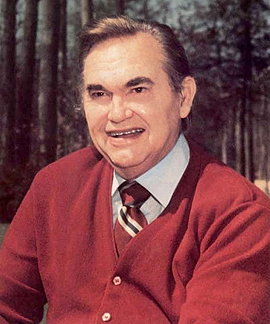|
Radically Changed by Rolaant McKenzie |
||
|
The Trigan Empire was a 1978 science fiction graphic novel based on a comic strip series written by Mike Butterworth (1924-1986) with artwork done by Don Lawrence (1928-2003). The setting was an alien, yet somewhat familiar, culture on a distant planet orbiting a binary star system called Elekton. Various people groups and nations inhabited this world, which had futuristic technology, such as antigravity vehicles and energy ray weapons, blended with architecture, dress, and customs reminiscent of ancient Persia, Greece, and Rome. The stories centered on a strong and heroic Vorgan tribal leader named Trigo, who united his nomadic people and built a great city and empire that bore his name and who continually defended the empire from external and internal threats. One of the stories involved an internal threat to the Trigan Empire. Thara, the niece of Emperor Trigo, coveted his power and quietly gathered an army of troops loyal to her at a secret mountain base. From there she sent forged letters to lure Trigo, his brother Brag, and Brag's son Janno to a hidden mountain pass near her base, where they were captured. With the three men who stood between her and the throne in her hands, she revealed herself to them. Trigo and Brag had not seen Thara since she was a young girl, but they remembered her as a self-willed monster who screamed whenever she did not get her way. Though the commander of her forces wanted their deaths, Thara could not bring herself to kill her uncles and cousin but handed them over to a pirate ship to serve as galley slaves. With the emperor and his heirs out of the way, and the people unaware of what happened to them, Thara and her troops went to Trigan City, where she assumed power and declared herself Empress of the Trigan Empire. After some time, realizing that only about half of the people accepted her rule, Thara wanted to win the loyalty and love of all of the people. She decided to do this by providing free food and entertainment but wanted to know how to raise the vast sums of money to pay for this. She ordered Peric, a very wise and senior advisor to Trigo, to be seized and brought to her to get the answer. Peric told Thara that to raise the money she wanted would require cutting the armed forces in half and withdrawing the garrisons from the frontiers of the empire, something he strongly urged her not to do, or she would be the last ruler of the Trigan Empire. Thara did not heed Peric's warning but provided free food and entertainment for the people at the expense of the empire's defense. The people were overjoyed and became idle. An army of Gorth tribesmen, seeing that the defenses had been rolled back and security significantly lessened, were able to ride through the frontier unchallenged to Trigan City itself and take it. Realizing her folly and remorseful for what she had done, Thara prepared to be killed by the Gorth soldiers as they were breaking down her bedroom chamber door. But Peric came up from a secret hatch from the floor and rescued her. They escaped through the underground caverns beneath the imperial palace and escaped to a safe location outside the city. While in hiding, Peric, who had great knowledge in the medical arts, sought to pass it on to Thara. As she learned, Thara experienced a radical change in her character. She transformed from desiring power at all costs to becoming a kind, compassionate woman who cared for others. Through various trials and circumstances, Trigo, Brag, and Janno escaped their captivity and were able to form a motley army and lead it to Trigan City, where they defeated and drove out the Gorth invaders. With Trigo back on the throne, Thara was brought before him to be judged. Knowing her guilt, she fully expected the sentence of death. Kneeling before an angry emperor, she begged for mercy, not for herself, but because alive she could be a benefit to the people she had so gravely wronged. Peric, who had come to stand next to Thara, urged Trigo to spare her life because of the knowledge of the healing arts he imparted to her. He believed she would become a great physician who would greatly benefit the people of the empire. After some thought, Trigo rose from his throne, went to Thara, and gently lifted her to her feet, telling her, "You have your life, Niece. Use it to save others." With gratitude, Thara responded, "Thank you, Uncle." This story included the message that even an apparently incorrigible and selfish person like Thara could, when exposed to kindness and grace, come to repentance, receive mercy and forgiveness through the intercession of someone she had harmed, and be granted a new life of blessing to others by the emperor she had deeply wronged. It is an incredible thing to see this transformation take place in a fictional tale, but it is even more wonderful when it occurs in real life, especially when it involves a famous political figure.
George Wallace (1919-1998) was an American politician who was the longest-serving governor of Alabama, having served four terms from 1963 to 1987. Wallace is remembered in his early tenure as governor for his staunch support of "Jim Crow" policies and segregation. Consistent with his belief at the time that Black people were an inferior race, a view shared by many White southerners of his generation, he declared during his 1963 inaugural address, "In the name of the greatest people that have ever trod this Earth, I draw the line in the dust and toss the gauntlet before the feet of tyranny, and I say segregation now, segregation tomorrow, and segregation forever." Wallace gained national infamy nearly five months later when he stood in front of the door of the University of Alabama to block the entrance of Vivian Malone and James Hood, two Black students coming to enroll for classes. On May 15, 1972, during his campaign for president of the United States, Wallace was shot four times by a would-be assassin, resulting in him being paralyzed from the waist down for the rest of his life. While in the hospital, Shirley Chisholm visited him. She was the first Black woman elected to the U.S. Congress. Wallace asked her, "Aren't your supporters going to be angry that you're here?" Chisholm responded, "Yes, they are. But I wouldn't want what happened to you to happen to anyone." Wallace was moved to tears by her kind words, and it started a radical change in his heart and mind. Several years later, Wallace announced that he was a born-again Christian and publicly apologized to Black people for his past actions as a segregationist. He expressed remorse by saying he was wrong for what he had done, that he was corrupted by his quest for power and glory, and that he realized his need to seek love and forgiveness. He made calls to people he had wronged to apologize and seek their forgiveness, even meeting with Vivian Malone and James Hood, who graciously forgave him. In 1979, Wallace made an unannounced visit to the Sunday service at Dexter Avenue King Memorial Baptist Church in Montgomery, Alabama, where Dr. Martin Luther King, Jr. had been pastor. From his wheelchair he begged for forgiveness from the congregation for all the pain and suffering he had caused. The congregation saw him as a changed man, recognized the sincerity of his repentance, and embraced him. As Wallace was being wheeled away, someone started to sing the famed hymn of forgiveness, "Amazing Grace," and was joined by the rest of the congregation. While some critics dismissed Wallace's conversion as a political ploy, the vast majority of Black people in Alabama did not think so. The last time he ran for governor, his 1982 electoral victory included more than 90% of the Black vote. In this last term, Wallace appointed more than a hundred Black people to state offices and supported legislation that benefited the poor, especially increasing access to education and better health care. Saul of Tarsus was a man zealously dedicated to his ancestral traditions, even advancing in Judaism beyond his contemporaries among his people (Galatians 1:11-14). He hated the name of Jesus and those who followed Him. The martyrdom of Stephen started a great persecution against the church, and Saul in his zeal would imprison men and women who believed in Jesus, even pursuing them in his rage to foreign cities. He persecuted the church of God beyond measure and tried his best to destroy it (Acts 8:1-3, 26:9-11). But Saul on the road to Damascus had a dramatic encounter with the Lord Jesus that radically changed his life. The risen Savior appeared to him and commissioned him to proclaim the gospel message that Jews and Gentiles may receive forgiveness of sins and salvation through faith in Him. Saul, who would be known as Paul, came into Damascus a changed man. The faith in Jesus he once sought to destroy, he now preached. God so powerfully used Paul to spread the gospel that even most of the New Testament Scripture was written by him. It continues as God's word to proclaim the message of forgiveness, reconciliation with God, and salvation to lost souls, and to edify the church. People sometimes say that a person raised in a certain way, who believes certain things, or acts in certain ways will never change. Many times, such people are written off as irredeemable. Jeremiah 13:23 says, "Can the Ethiopian change his skin or the leopard his spots? Then you also can do good who are accustomed to doing evil." Apart from Jesus, a person accustomed to doing evil can no more do good than an Ethiopian change his skin or a leopard his spots (Romans 3:9-26). But God through Jesus Christ can renew the sinner's nature and grant him an eternal inheritance in His kingdom.
George Wallace was a notorious segregationist who coveted power and whose rhetoric and policies in his early career as governor caused great harm to citizens of his state. Paul was formerly a ruthless persecutor and murderer of Christians. But God radically changed their lives through the power of grace and forgiveness found only in Jesus. Can a man or woman change? Can you change? Yes! Believe in the Lord Jesus Christ, for in Him only will you receive new birth and be radically changed.
|
||
| What Is the Gospel? | What Must I Do to Be Saved? | Home | Contact Us | Return | ||

